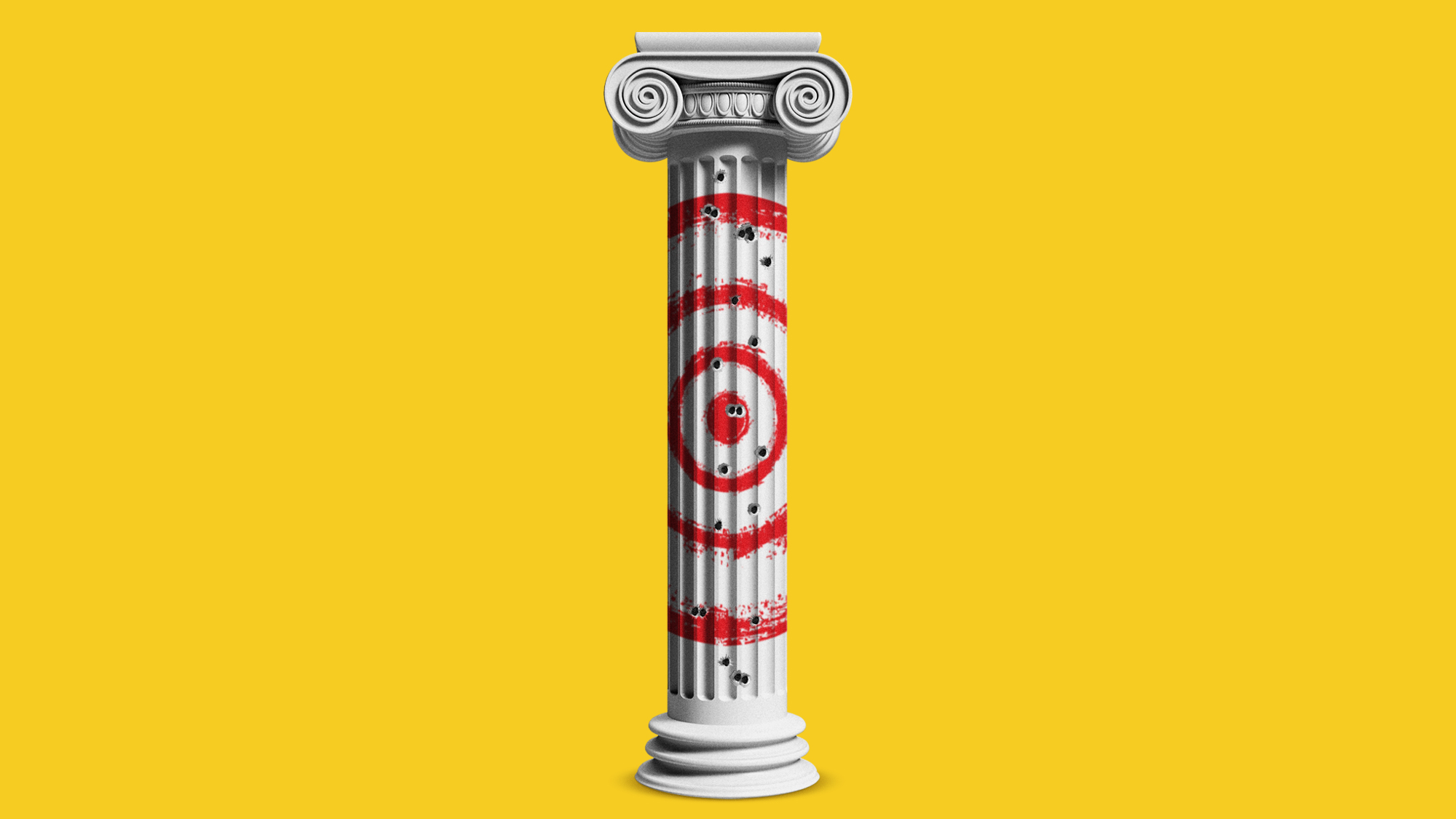How are attorneys dealing with Trump's attacks on law firms?
Trump has sanctioned the law firm that investigated his dealings with Stormy Daniels, among others


A free daily email with the biggest news stories of the day – and the best features from TheWeek.com
You are now subscribed
Your newsletter sign-up was successful
President Donald Trump has spent much of his first eight weeks in office going after his alleged political enemies, and law firms appear to be at the top of that list. The White House has placed its crosshairs on several big-name firms whose lawyers previously pursued cases against the president, forcing attorneys to find ways to fight back.
Trump has filed sanctions against three major firms: Covington & Burling, Paul Weiss, and Perkins Coie. All three firms have previously drawn Trump's ire. A Covington employee had provided legal services to former special counsel and Trump prosecutor Jack Smith, former Paul Weiss attorney Mark Pomerantz investigated Trump's ties to porn star Stormy Daniels in a hush-money case, and former lawyers with Perkins Coie had previously worked for Hillary Clinton's campaign.
These sanctions limit the work these firms can do with federal institutions and also revoke their employees' security clearances. Many within the legal realm are worried that Trump's attacks could be expanded to more law firms he disagrees with.
The Week
Escape your echo chamber. Get the facts behind the news, plus analysis from multiple perspectives.

Sign up for The Week's Free Newsletters
From our morning news briefing to a weekly Good News Newsletter, get the best of The Week delivered directly to your inbox.
From our morning news briefing to a weekly Good News Newsletter, get the best of The Week delivered directly to your inbox.
What did the commentators say?
Much of the "trepidation inside big firms comes from Trump's new strategy of signing executive orders seemingly aimed at destroying firms in retaliation for perceived wrongs dating back a decade," said Daniel Barnes at Politico. Many law firms are "afraid that if you're out there and perceived as being anti-administration, that could hurt your firm," a senior attorney at a large firm said to Politico.
Others put it more bluntly: Firms are "scared of retribution," a senior attorney at another firm said to Politico. If the White House wants to "put a head on a spike in the city square in order to deter people from crossing the ruler, it really doesn't matter if the person's head is of someone innocent or guilty."
Perkins Coie, in particular, has been affected by Trump's sanctions in a major way. Trump can "cripple the firm's ability to represent its clients and create an existential threat for it that could put it out of business," said Michael Schmidt at The New York Times' "The Daily" podcast. Trump has "fundamentally undermined the American legal system."
But lawyers are starting to fight back, and the "true obstacle between Trump and dictatorship is not the judges alone but the entire legal system and the legal profession — judges and lawyers," said Frank Bowman at Slate. It was lawyers who "handed Trump his biggest setbacks in his first term," and the "legal profession as a whole must fight back" in court.
A free daily email with the biggest news stories of the day – and the best features from TheWeek.com
What next?
Some law firms may try to appeal to the White House directly. The head of Paul Weiss has been "meeting with officials in Trump's orbit," said Semafor. The firm is "discussing a particular path back into the administration's good graces: helping the White House respond to alleged instances of antisemitism that came out of the wave of campus protests last year."
But questions remain as to how effective any of these conversations will be. Lawyers aren't the "most sympathetic group targeted by Trump, but they perform a foundational role in safeguarding the rule of law," said The Washington Post's editorial board. Trump has pledged to expand his efforts. "We have a lot of law firms that we're going to be going after," he said to Fox News. Law firms "must reject Trump's improper targeting. Otherwise, Trump will keep pushing," said the Post.
Justin Klawans has worked as a staff writer at The Week since 2022. He began his career covering local news before joining Newsweek as a breaking news reporter, where he wrote about politics, national and global affairs, business, crime, sports, film, television and other news. Justin has also freelanced for outlets including Collider and United Press International.
